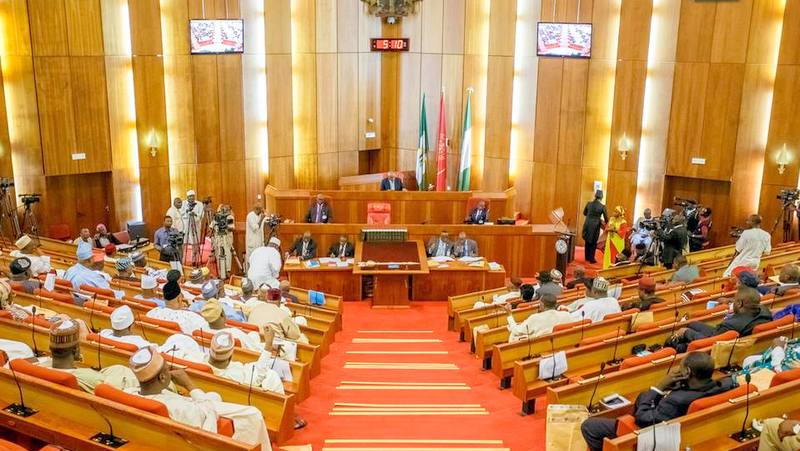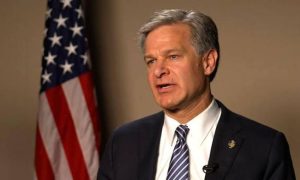Senate Postpones Debate on Rivers State of Emergency: A Closer Look at the Political and Legal Implications
The political tension in Nigeria has been rising steadily following President Bola Tinubu’s declaration of a state of emergency in Rivers State. The state has seen escalating security challenges in recent months, with militant groups and criminal elements causing widespread damage, particularly in the oil-rich regions. President Tinubu’s decision to impose a state of emergency in Rivers State was met with mixed reactions, but it was the subsequent action by the Senate that has now caught the attention of political analysts and the general public. The Senate’s postponement of the debate on this critical issue has only heightened the intrigue surrounding the future of governance in Rivers State and the political ramifications across the country.
On March 19, 2025, the Senate of the Federal Republic of Nigeria had been scheduled to begin a debate on the state of emergency declared by President Tinubu in Rivers State. However, the debate was abruptly postponed to Thursday, March 20, 2025, due to delays in the commencement of the Senate’s plenary session. The delay, which lasted for about two hours, was caused by the absence of a significant number of senators, as many were still arriving at the Senate chambers. This caused frustration and confusion, particularly since the debate was considered a critical moment in Nigerian politics, with far-reaching implications for the balance of power between the federal government and state authorities.
Senate Leader, Opeyemi Bamidele (APC, Ekiti Central), who sponsored the motion for the debate, cited Order 1(b) of the Senate Standing Orders 2023 (as amended) to move for the postponement of the debate. This motion was seconded by the Minority Leader, Abba Moro (PDP, Benue South), and after a brief deliberation, the Senate moved to the next item on the agenda without further discussion on the matter at hand. This decision raised several eyebrows, particularly among observers who had expected a full and robust debate on the legal, political, and security issues surrounding the imposition of the state of emergency.
The motion that was tabled in the Senate by Bamidele is of particular interest due to the gravity of the situation it seeks to address. According to the motion, the government of Rivers State, led by Governor Siminalayi Fubara, is facing severe challenges from militant groups and organized criminals. Security reports suggest that these elements have been involved in the vandalization of critical infrastructure, including oil pipelines, and have posed an increasing threat to the safety and well-being of citizens in the state.
The motion outlined the growing concerns over these security issues, which have been exacerbated by recent threats from militant groups who have vowed to escalate violence unless certain demands are met. These groups have reportedly caused widespread damage to key industries, particularly in the oil sector, which is a primary revenue earner for both the state and the country. The Senate motion calls for extraordinary measures to restore peace, order, governance, and security in Rivers State, emphasizing the need for swift and decisive action from the federal government.
While the motion does indeed reflect the severity of the security situation in Rivers State, its broader implications go beyond just addressing local issues. The decision to impose a state of emergency in the state represents a significant intervention by the federal government in the affairs of a state, raising constitutional and political questions about the scope of federal powers, the autonomy of state governments, and the role of the National Assembly in approving such drastic measures.
According to the Nigerian Constitution, a declaration of a state of emergency is a serious matter that requires the approval of the National Assembly, particularly the Senate. Section 305 of the Constitution grants the President the power to declare a state of emergency in any state of the federation if certain conditions are met, such as a breakdown of law and order or widespread violence that threatens public safety. However, for the declaration to take effect, the Senate must approve it through a two-thirds majority vote, which, in the case of the current Senate, would require the support of at least 73 out of 109 senators.
The requirement for a two-thirds majority reflects the serious nature of a state of emergency, as it allows the federal government to assume greater powers in a state and override certain provisions of the constitution. During a state of emergency, the federal government can take direct control over security operations, suspend certain rights and freedoms, and assume emergency powers to restore order. These extraordinary powers are typically temporary, but they carry significant implications for the governance of a state and its relationship with the federal government.
Given that the state of emergency declared by President Tinubu is a matter of national interest, the Senate’s role in reviewing and approving the motion is of critical importance. The debate scheduled for March 20 is expected to be a high-stakes one, as senators from different political parties are likely to have differing opinions on the necessity and legality of the state of emergency. While some may argue that the situation in Rivers State requires urgent federal intervention, others may view it as an overreach by the central government into the affairs of a state, particularly since Nigeria’s federal system is designed to grant significant autonomy to state governments.
The Senate’s postponement of the debate on the state of emergency highlights the deep political divisions within the legislative body. While the motion to declare a state of emergency was sponsored by Opeyemi Bamidele, a senator from the ruling All Progressives Congress (APC), the issue is far from a partisan one. The response to the motion has been mixed, with senators from various parties expressing divergent views on the matter.
Some APC senators have voiced support for the state of emergency, citing the need for decisive action to restore order and protect the economic interests of the country, particularly in relation to the oil sector. These senators argue that the growing insecurity in Rivers State has become a national issue, and therefore, the federal government must take strong measures to ensure the safety of citizens and the protection of vital infrastructure. From this perspective, the state of emergency is seen as a necessary and justified response to a security crisis that is beyond the capacity of the state government to handle.
On the other hand, opposition senators, particularly from the Peoples Democratic Party (PDP), have raised concerns about the implications of the federal government’s intervention in the affairs of Rivers State. They argue that the move could be politically motivated, especially since Rivers State has historically been a stronghold for opposition parties, including the PDP. These senators fear that the state of emergency could be used as a tool to undermine the political authority of the state government and consolidate federal power at the expense of the state’s autonomy.
The postponement of the debate has further intensified these political tensions, as it is unclear whether the required two-thirds majority will be achieved when the debate resumes on March 20. Some senators have already expressed concerns that the motion may not pass, as there is no guarantee that enough lawmakers will support the declaration, particularly given the divisive nature of the issue.
Beyond the political and security concerns, the Senate’s decision to postpone the debate on the state of emergency also raises important constitutional and legal questions. One of the central issues is the interpretation of Section 305 of the Nigerian Constitution, which grants the President the authority to declare a state of emergency but also sets limits on the duration and scope of such declarations.
The constitution is clear that a state of emergency can only be declared in exceptional circumstances, and it must be subject to approval by the National Assembly. The fact that the Senate is deliberating on this issue suggests that there are differing views on whether the current situation in Rivers State meets the constitutional threshold for the declaration of an emergency. Critics of the move may argue that the situation does not constitute the kind of national crisis that justifies the suspension of constitutional rights and the imposition of federal control over state affairs.
Furthermore, there are concerns about the potential for abuse of emergency powers. In the past, Nigeria has witnessed periods of military rule, during which emergency powers were used to suppress political opposition and curtail civil liberties. As a result, some lawmakers and constitutional experts have called for caution in granting the federal government such sweeping powers, emphasizing the importance of safeguarding Nigeria’s democratic institutions and the rights of citizens.
As the debate on the state of emergency in Rivers State is postponed until March 20, all eyes are on the Senate and its members, who will play a pivotal role in determining whether the emergency rule will take effect. The outcome of the debate will have significant implications not only for Rivers State but for the future of Nigeria’s federal system and the relationship between the federal and state governments.
If the Senate approves the declaration, it will set a precedent for future interventions by the federal government in state affairs, potentially raising concerns about the centralization of power and the erosion of state autonomy. On the other hand, if the motion fails to pass, it could signal a rebuke of the federal government’s actions and a reaffirmation of the principle of state sovereignty in Nigeria’s federal system.
Ultimately, the Senate’s decision on the state of emergency will reflect the political realities of Nigeria’s current governance system, which is marked by deep divisions and competing interests. The road ahead remains uncertain, but one thing is clear: the debate over the state of emergency in Rivers State will be a defining moment in the political history of Nigeria.





